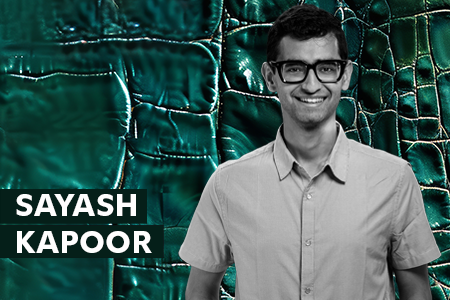- 06/06/2024
Pretty much instantly. Especially when ChatGPT 3.5 came out. The underlying model for 3.5 was released to the public through something called “the playground”. I was with the first people to play with it, because I'd been using earlier models. The improvement was clear. It was writing poems, giving me advice on how to build a fast and light spacecraft and other things you wouldn’t expect an AI to do. And then I was able to show my students, most of whom are non-technical. They all started using it right away. I knew then something is very different here.
I know what you mean. I’ve been using generative AI tools for a while now. So have my son and my partner. In the book you describe the frontier LLMs as “co-workers,” “tutors” and “coaches.” That totally resonates with me. But what do you think will happen in the enterprise? There’s a lot of talk about a growing portion of cognitive work being handled by AIs. What then happens to the development of expertise in the firm if there’s no place for younger workers to start learning their craft, if all that stuff we had to do to learn the ropes as junior employees is now done by AIs?We counted on that kind of professional development as a sort of natural consequence: You hire smart people as first years, as the initial analysts or whatever role you have, and they need to be trained. So we train them by giving them well-understood tasks. We give them feedback, and that's how you learn the job. Mastery comes from repetition with guidance and being challenged constantly. That’s exactly what AI is really good at, doing that kind of basic work. So, the problem is, if we remove that rung of the ladder, how do people build mastery? I think we have to be much more deliberate and creative about that going forward, about the jobs that we ask AI to do. That has to be a deliberate, conscious process. HR and talent development are going to become very important, and will have to be rethought, because the traditional way of growing into a job is about to break with AI.
Recently, new versions of AI models have been released. I know this is a fast-moving space, but where do you think these tools are headed? Are AI agents on the horizon?Agents are the idea of AI with autonomous goals and direction, and that is, I think, the goal of GPT 5 and future versions of Gemini, which have not been released yet to the public yet. I think agents are in the works. What we saw with GPT-4o and the latest Gemini release is the idea of multimodal, ubiquitous AI. The idea here is that these things interact with you like a person: they can see and hear you and respond to your speech and gestures. You can have a deep set of experiences and interactions with them. It makes them ubiquitous in the world because they can see the world around them and react to what’s happening.
You’ve been exploring AIs for a while now. Are there any recommendations you have for folks who are just starting out?I have the four principles in my book that are a good starting point. The first is to invite AI to everything you do and use it for everything that you legally and ethically can. That's how you learn what it’s good or bad at. And you need to put your 10 hours in, and you should try everything. You'll find that it's good at some stuff, bad at some other stuff. Bring it to some of your meetings and have it summarize results, help you generate ideas, and change the tone of an email. That's how we can learn how these things work.
The second is that you need to prepare for what I call the “three sleepless nights.” That’s when you start to realize that it can actually do things that you thought only a human could do. It’s inevitable. I think the way we move forward from that sort of dark night of the soul is to spend some time thinking hard about what we want this thing to do. What part of our work do we care about? What does our work mean to us? Whatever you're best at, you're probably better than the AI. So, the question is, what do you want to hand off to the AI because you don't want to do it? What do you want to do as a human?
The third principle is just to interact with the AI like a person. I don’t mean that it is a person, that is sentient. But if you talk to it as if it were a person, you're 90% of the way there. Just tell it who it is, what you want it to do for you, and go. The fourth principle: remember that the AI you’re using today is the worst you’re ever going to use. Things are changing rapidly, so using it now can help you get to a place where you’ll know how to use future models.
05232024-whdpt3c1











